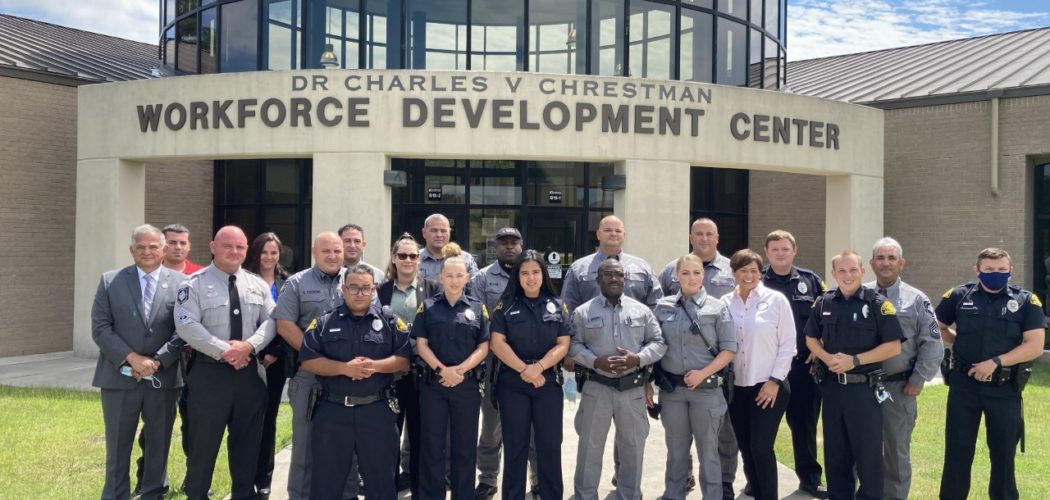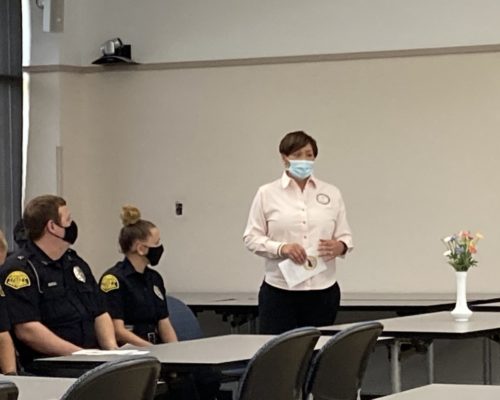
Crisis Intervention Team Training Graduation held at RCC
Twenty law enforcement officers across North Carolina graduated Friday, August 20 from Robeson Community College’s Crisis Intervention Team (CIT) Training. Participants included members from the Robeson County Sheriff’s Department, the Lumberton Police Department, the North Carolina State Bureau of Investigation and the NC Magistrate’s Office.
According to Lee Hinson, director of the law enforcement continuing education programs at RCC, CIT is a 40-hour training program designed specifically for individuals working in law enforcement and criminal justice.
“CIT programs are initiatives at the local level,” said Hinson. “These programs are designed to improve the way that law enforcement, and the community, respond to people experiencing a mental health crisis and aims to de-escalate situations that an officer might encounter.”
The National Alliance on Mental Illness (NAMI) states that “CIT programs are built on strong partnerships between law enforcement, mental health provider agencies and individuals and families impacted by mental illness.”
The CIT program at Robeson Community College is offered in partnership with Eastpointe, a managed care organization (MCO) dedicated to working with individuals and families in Robeson County and all across Eastern North Carolina who struggle with substance abuse, mental health, and intellectual and developmental disabilities.
Graduates of the 2021 Crisis Intervention Team Training program at RCC are as follows:
Lumberton Police Department:
- Alexa Hernandez-Carias
- Brandi Biggs
- Donavan Fields
- Gabriel Jimenez
- Isiah Taylor
- Jeffrey Lowe
- Nolan McLamb
- Savanna Locklear
Robeson County Sheriff’s Office:
- Amada Velez
- Brandon Oxendine
- Coby Houser
- Garrett Hunt
- James Brown
- Mark Graham
- Steven Earl Jones
- Steven Lewis
- Vincent Locklear
- Winfred Cox
Magistrate
- Barbara Jacobs
NCSBI
- Heather Monteiro
Upon completion of CIT, graduates are able to:
- Identify mental disorders and give specific examples of the similarities and differences of each.
- Describe various traits/characteristics of individuals with substance abuse, mental illness, and/or intellectual disabilities and displayed behaviors when these individuals experience crisis.
- Demonstrate verbal de-escalation skills and effective communication skills. Identify local resources, helpful information and alternatives to higher-end services such as petitions to the court, involuntary commitment to psychiatric hospitals, etc.
- Identify and discuss Eastpointe’s referral process and its role in continuity of care of members.
- Explain the importance of community resources to enhance member out-comes.
- Identify and discuss challenges when dealing with individuals with Intellectual/Developmental Disabilities.













